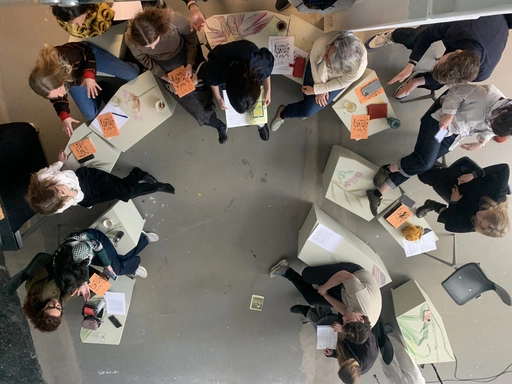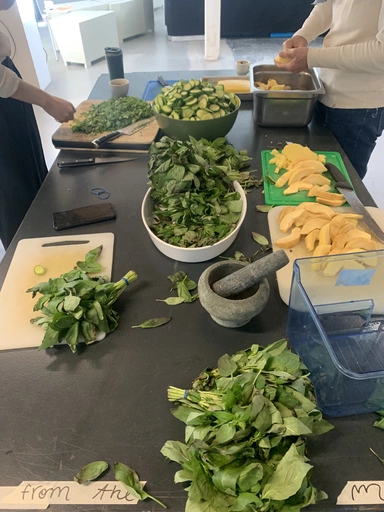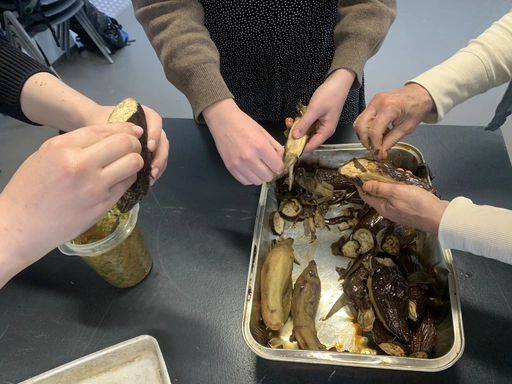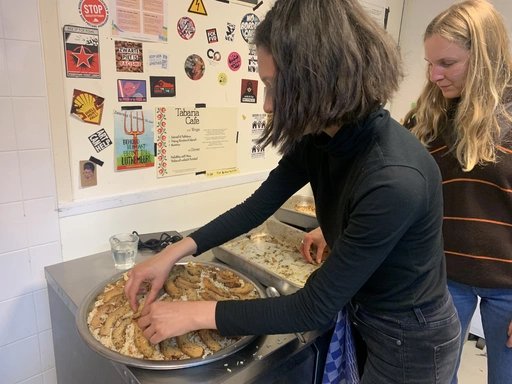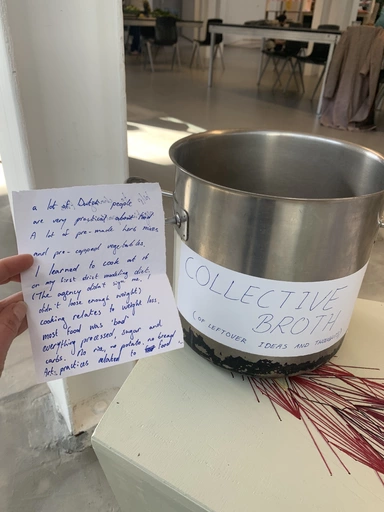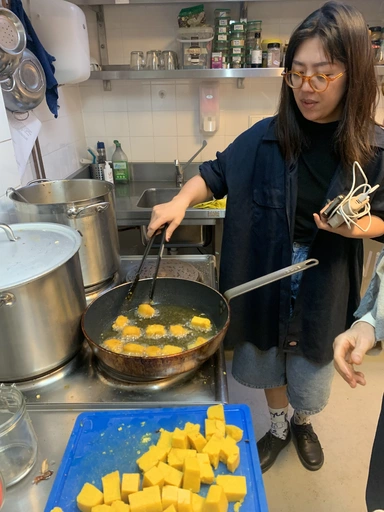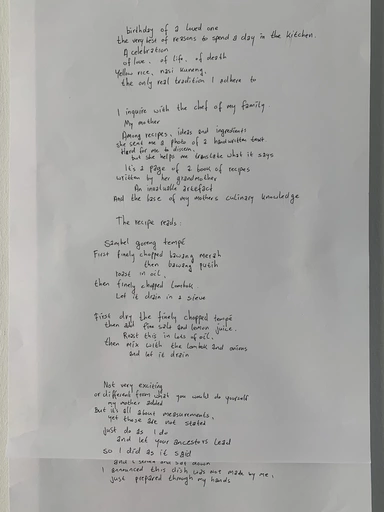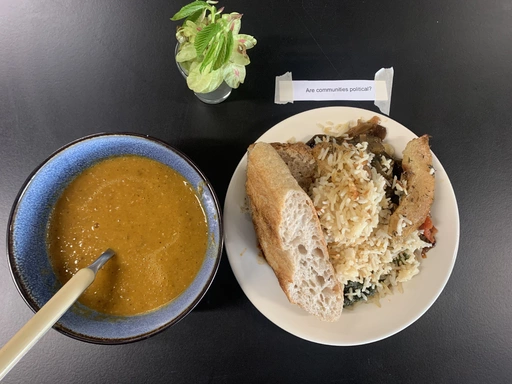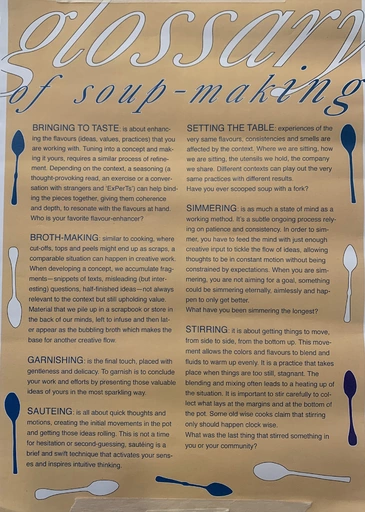
Soup is really something that you see in every social class and in every kind of culture and also in every time of history.
“It is quite a good metaphor and practice to initiate conversations about commoning and in general about politicising food. Because soup is something that everyone relates too since the dawn of time. Some people say that we even come from primordial bro
Two large pots filled with different types of soup, are set up on the new up-cycled bar that is still under construction. The aroma fills the space and draws everyone together at the long table. There is also another pot titled “Collective Broth (of leftover ideas and thoughts)”, that has papers with drawings and writings in it.
I’m starting to gather, from the setting that I find myself in, that there is a specific theme that has been taking place in the Basecamp over the last few days. The Basecamp is currently hosting a group of students, focusing on interrogational art, which includes engaging with non-human, post-human connections from the masters in Groningen.
Since I haven’t been present for most of the program, I decided to speak with Gea and Rebecca, the co-organisers of the Soup Making program to get a cohesive and tasty scoop to share with you in this blog. Both are cooks that met in a community kitchen. They have been working together on projects which focus on joining art, cooking and ecological practices. In response to an open call on the theme of Commons, they proposed using the metaphor of soup making for this program.
“It is quite a good metaphor and practice to initiate conversations about Commoning and in general about politicising food. Because soup is something that everyone relates too since the dawn of time. Some people say that we even come from primordial broth.” Stated Gea.
“Also, you have a lot of different types of dishes, but soup is really something that you see in every social class and in every kind of culture and also in every time of history it somehow appears in so many forms over the whole world and in that way that kind of ties people together, which is quite beautiful.” Shared Rebecca.
“It’s also something that you can twist around in many ways, and it has plenty of ingredients and there are different steps in soup making that can refer to social movements. For insistence on simmering, bringing to taste, stirring, how does this translate into a social movement? Especially a social movement that wants to make a change within the food culture, within the food economy.” Says Gea. You can see the Glossary of Soup Making in the images below.
“The vision was that this was a long-term process, and we would work it out throughout a year with different sessions, like the ones that have been hosted these last few days. Where the participants were focusing on exploring different recipes. Because recipes are a vessel and can be an archive to dive into cultural, geographical contexts. Recipes have ingredients that can be real or imaginary, but recipes also tell a lot about what was actually at hand, what was the need, what was the occasion. Who gathered around, what kind of traditions do they tell us about? So, it is also a way to use our memories as well as our imagination to re-find new ways to signify food and to relate to it.” Rebecca.
“One of the activities from the program was where the participants had 3 cooking stations and quite random ingredients and they had to make two soups and some side dishes or toppings. They had to collaborate and to share things, but not all of them had the crucial ingredients that you need in the kitchen, such as salt, oil, water and so on. So, they had to make compromises and find out how to negotiate in a group. How to share resources and how to make it work, although you are all aiming towards the same goal. Which is in this case, to have a nice meal that comes through together.” Gea
Well, here I am scooping up the co-cooked soups and other tasty morsels that these groups have successfully made, it is a true delight. As part of the table settings are poignant written conversation topics. This stirs up a discussion between a few of us eating together, about the broken food system that is out of sight and out of mind. But can’t be ignored when you're standing in front of or walking in the larger containers which are overflowing with food every week at various locations spread throughout the city. As well as the wishful desires to host a pop-up BBQ at one of these locations. What also arises through this conversation is how stingy and restrictives food banks are and how there is no space, action or imagination of what to do in between supply and waste, when everything is dominated by economic growth. It’s a practical reminder of yet another broken system that needs to be revolutionised, perhaps by practices such as Soup Making.
With a very full tummy and a brain well stirred, I would like to encourage you to delve into the Glossary Soup Making, which you can find in the images below. Perhaps you will be inspired to host a Soup Making experience with family or friends, where you can explore the truly nourishing metaphor that has been freely shared here today.
